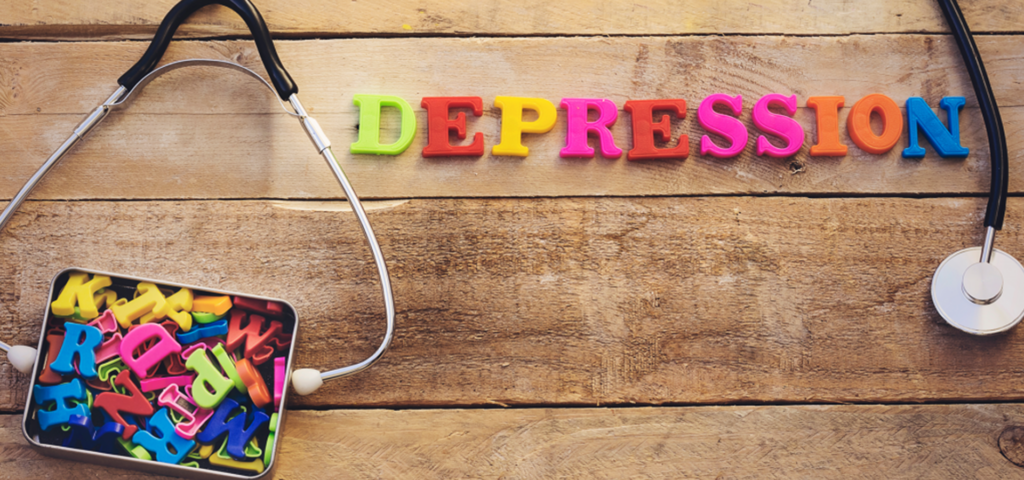[vc_row][vc_column][vc_custom_heading text=”What is Depression?” use_theme_fonts=”yes”][vc_column_text]Depression is a common, treatable, mental health condition that affects 16.2 million Americans annually. Regardless of the large number of people affected, depression remains vastly misunderstood, ignored and stigmatized. Depression can cause those affected to feel extreme sadness, hopelessness, helplessness, trouble sleeping and over/under eating. Depressive episodes have symptoms that can last anywhere from a few weeks to a few years. When left untreated, depression can lead to suicide. There are many different types of depression; depression can be seasonal, situational, or even caused by other mental health conditions such as bipolar disorder or substance abuse. Whether your depression is caused by trauma, the winter or a chemical imbalance in your brain, you are not alone and you are not to blame. A life without depression is possible and help is only a phone call away.[/vc_column_text][/vc_column][/vc_row][vc_row][vc_column][vc_single_image image=”2116″ img_size=”full” add_caption=”yes” alignment=”center” el_class=”resp-img”][/vc_column][/vc_row][vc_row][vc_column][vc_custom_heading text=”Depression and Addiction” use_theme_fonts=”yes”][vc_column_text]Many people struggling with depression feel guilty and ashamed, which keeps them from reaching out for help. Depression is a treatable mental health condition, and with therapy and the proper medications, you can live a happy, fulfilling life. Depression can also be a contributor to substance use issues and addiction. Many people try to handle their symptoms of depression on their own, which leads to drug or alcohol misuse. Finding the right therapist, psychiatrist, and medication are some of the best, proven ways to fight your depression. Finding a group of professionals who really understand your struggle with depression and work together to find a treatment that is right for you can seem impossible, and sometimes it takes multiple tries with different medications and different therapy styles before you can find what works best for you. At all Amatus Health treatment center’s, your treatment team will work with you on learning about your depression, and how to manage your depression. We will devise an individualized treatment plan tailored to meet your needs and help you heal from any past traumas that may have led to your depression. Your team will also help your family heal and understand your depression and addiction with psycho-education and family therapy. Mental health residential is a good choice for anyone who feels like their depression has gotten out of control and has begun consuming their life. It gives you time away from stress and triggers, to really focus on yourself. Residential treatment is also a good time to figure out what medication, or combination of medication, works best for you. Medication can be life changing for people with serotonin and other chemical imbalances in the brain. Atlanta Detox Center, one of our newest premier treatment centers, offers inpatient mental health crisis intervention, medication management and around the clock care. When someone begins therapy or medication, it does not magically cure them within a week, it can take anywhere between two and four weeks for medication to begin working with the brain to fix any chemical imbalances, in residential treatment you have the time you need to make sure medications and therapy are working.[/vc_column_text][vc_single_image image=”2119″ img_size=”full” add_caption=”yes” alignment=”center” el_class=”resp-img”][/vc_column][/vc_row][vc_row][vc_column][vc_custom_heading text=”Depression and Suicide” use_theme_fonts=”yes”][vc_column_text]Sadly, many people give up before the miracle happens. Depression is the leading cause of suicide. Many people are aware that depression can lead to suicidal ideation or suicide attempts. Suicide is the tenth leading cause of death in the United states. Over 44,000 people taking their lives each year, and the number has continued to climb in the past year. For every one of the people who commit suicide in a year, there are 25 more people who attempt suicide. The signs and symptoms that someone may be feeling suicidal are often mistaken that someone is feeling “better.” Some people that are having thoughts of suicide have acted happier in the weeks before they attempt suicide, this may be due to them finally making the decision that, they believe, will end their pain. Noticing these extreme shifts in mood is important to helping your loved one dealing with depression or suicidal thoughts. Many people who are contemplating suicide also will talk about “ending it all” or “ending their pain.” If someone begins talking about death and ending their pain, it is important to ask them if they are feeling suicidal. Asking someone if they are suicidal will not “put the idea in their head,” and is a positive way to begin the conversation and help them. Communicating with someone that is feeling suicidal can help them feel less shame and guilt. People who are feeling suicidal may also exhibit impulsive behaviors, such as drastic changes to appearance or suddenly quitting a job, giving away any “prized possessions” and calling old friends to say good-bye.[/vc_column_text][/vc_column][/vc_row][vc_row][vc_column][vc_custom_heading text=”Depression is Treatable!” use_theme_fonts=”yes”][vc_column_text]If you, or someone you know is struggling, reach out for help today. The cycle of depression and addiction can feel lonely and scary; however, you don’t have to go through it alone. Asking for professional help is the first step towards freedom and happiness. If you believe someone you love is suffering from depression or is using drugs and alcohol to cope with depression, reach out to an expert today.[/vc_column_text][/vc_column][/vc_row]








